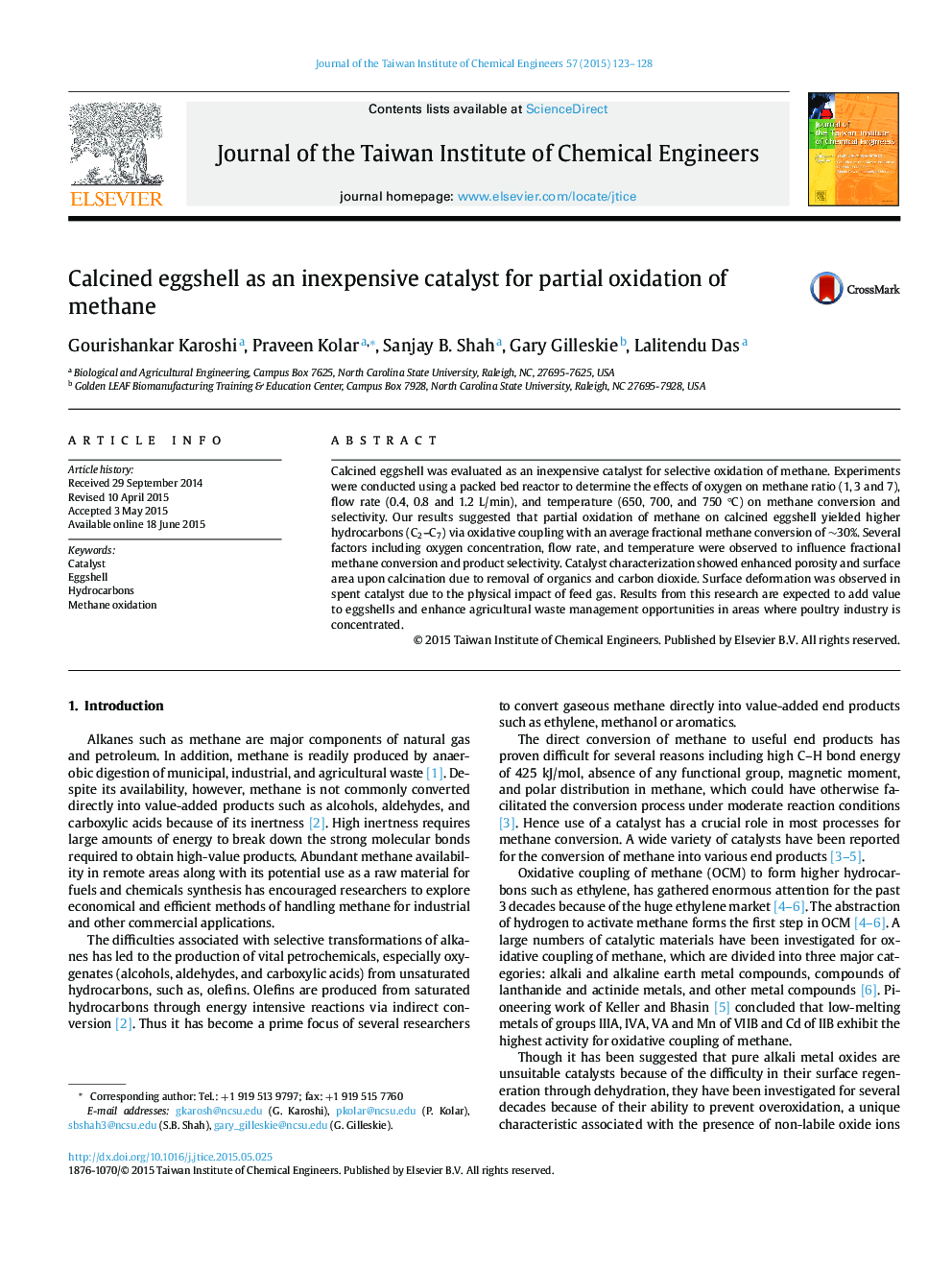| Article ID | Journal | Published Year | Pages | File Type |
|---|---|---|---|---|
| 690804 | Journal of the Taiwan Institute of Chemical Engineers | 2015 | 6 Pages |
•Calcined eggshell as an inexpensive catalyst for partial oxidation of methane.•Preferred selectivity toward carbon dioxide, ethylene, ethane, 1,3 butadiene and propene.•Surface-based oxidative coupling is proposed as main reaction mechanism.
Calcined eggshell was evaluated as an inexpensive catalyst for selective oxidation of methane. Experiments were conducted using a packed bed reactor to determine the effects of oxygen on methane ratio (1, 3 and 7), flow rate (0.4, 0.8 and 1.2 L/min), and temperature (650, 700, and 750 °C) on methane conversion and selectivity. Our results suggested that partial oxidation of methane on calcined eggshell yielded higher hydrocarbons (C2–C7) via oxidative coupling with an average fractional methane conversion of ∼30%. Several factors including oxygen concentration, flow rate, and temperature were observed to influence fractional methane conversion and product selectivity. Catalyst characterization showed enhanced porosity and surface area upon calcination due to removal of organics and carbon dioxide. Surface deformation was observed in spent catalyst due to the physical impact of feed gas. Results from this research are expected to add value to eggshells and enhance agricultural waste management opportunities in areas where poultry industry is concentrated.
Graphical abstractFigure optionsDownload full-size imageDownload as PowerPoint slide
